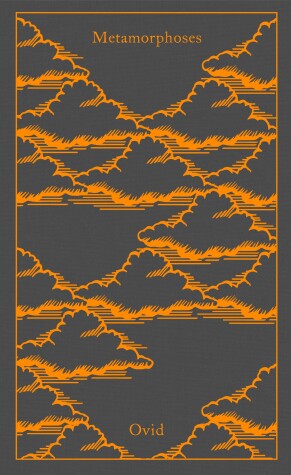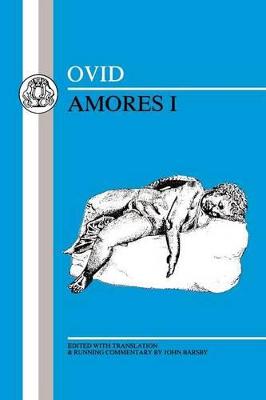BCP Latin Texts
3 total works
Ovid’s deliciously clever and exuberant epic, now in a gorgeous new clothbound edition
Ovid’s sensuous and witty poetry brings together a dazzling array of mythological tales, ingeniously linked by the idea of transformation—often as a result of love or lust—where men and women find themselves magically changed into new and sometimes extraordinary beings. Beginning with the creation of the world and ending with the deification of Augustus, Ovid interweaves many of the best-known myths and legends of Ancient Greece and Rome, including Daedalus and Icarus, Pyramus and Thisbe, Pygmalion, Perseus and Andromeda, and the fall of Troy. Erudite but lighthearted, dramatic yet playful, the Metamorphoses has influenced writers and artists throughout the centuries from Shakespeare and Titian to Picasso and Ted Hughes.
This edition includes David Raeburn’s modern verse translation, an introduction by Denis Feeney, and other features to help readers fully appreciate Ovid’s epic.
For more than seventy years, Penguin has been the leading publisher of classic literature in the English-speaking world. With more than 1,700 titles, Penguin Classics represents a global bookshelf of the best works throughout history and across genres and disciplines. Readers trust the series to provide authoritative texts enhanced by introductions and notes by distinguished scholars and contemporary authors, as well as up-to-date translations by award-winning translators.
Ovid’s sensuous and witty poetry brings together a dazzling array of mythological tales, ingeniously linked by the idea of transformation—often as a result of love or lust—where men and women find themselves magically changed into new and sometimes extraordinary beings. Beginning with the creation of the world and ending with the deification of Augustus, Ovid interweaves many of the best-known myths and legends of Ancient Greece and Rome, including Daedalus and Icarus, Pyramus and Thisbe, Pygmalion, Perseus and Andromeda, and the fall of Troy. Erudite but lighthearted, dramatic yet playful, the Metamorphoses has influenced writers and artists throughout the centuries from Shakespeare and Titian to Picasso and Ted Hughes.
This edition includes David Raeburn’s modern verse translation, an introduction by Denis Feeney, and other features to help readers fully appreciate Ovid’s epic.
For more than seventy years, Penguin has been the leading publisher of classic literature in the English-speaking world. With more than 1,700 titles, Penguin Classics represents a global bookshelf of the best works throughout history and across genres and disciplines. Readers trust the series to provide authoritative texts enhanced by introductions and notes by distinguished scholars and contemporary authors, as well as up-to-date translations by award-winning translators.
This edition of the first book of Ovid's "Amores" was first published in 1973 by OUP. It has been kept in print by BCP because it remains an outstandlingly useful volume. It was one of two editions (the other being Gordon Williams' "Horace 'Odes' III", 1969) in which OUP pioneered a new kind of continuous running commentary particularly suited to short poems, one 'likely to be more illuminating than a series of disconnected notes on isolated problems, which may contribute little to the total understanding of the poem as the poet conceived it'. This approach was intended to promote in sixth-formers and undergraduates not just an understanding of the Latin but a critical appreciation of literary quality. In this aim, the edition has been a continued success.


